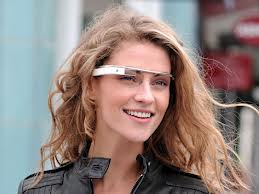

You will be amazed (and slightly creeped out) by what Google Glass has the capability to do now.
As Google glass becomes mainstream, below is a real life example of how difficult it will be to maintain any form of privacy or anonymity. Parents have to be aware of wearable technology like this and the possible capabilities (good and bad). There is always a chance that these devices will be used to intimidate, threaten or manipulate children and uninformed users. This article is great because it provides steps they and their family can take to opt out of these kind of databases. Read on for the full text of the original article found on E! News.
Have you ever seen someone wearing Google Glass out at the bar? Like a real person at a real bar actually wearing Google Glass? If so, you know how absolutely ridiculous they look. Which may be the only factor we have that will stop this:
A new app will allow total strangers to ID you and pull up all your information, just by looking at you and scanning your face with their Google Glass. The app is called NameTag and it sounds CREEPY.
The "real-time facial recognition" software "can detect a face using the Google Glass camera, send it wirelessly to a server, compare it to millions of records, and in seconds return a match complete with a name, additional photos and social media profiles."
The information listed could include your name, occupation, any social media profiles you have set up and whether or not you have a criminal record ("CRIMINAL HISTORY FOUND" pops up in bright red letters according to the demo).
And NameTag may have already added you to their database.
Two million entries have already been uploaded to FacialNetwork.com. Once the app officially goes live, you can sign up for NameTag and opt-out, instead of the alternative: Having to opt-in to allow them to show your information.
How is that OK?
"It's not about invading anyone's privacy," one NameTag's creators claimed (via Independent). "It's about connecting people that want to be connected. We will even allow users to have one profile that is seen during business hours and another that is seen in social situations. NameTag can make the big, anonymous world we live in as friendly as a small town."
It may not be about invading anyone's privacy, but that sounds like what it does. And forcing people to opt-out if they want to maintain their privacy is wrong (we would go so far as to say it should be illegal). But the purported benefits of the app are almost even worse:
They continue, "It's much easier to meet interesting new people when we can simply look at someone, see their Facebook, review their LinkedIn page or maybe even see their dating site profile. Often we were interacting with people blindly or not interacting at all. NameTag on Google Glass can change all that."
Gross.
It's enough to make you root for that app that lets you film Google Glass porn. If you had to pick one. Luckily, Google has banned facial-recognition software from the Glass—for now.
UPDATE: The Google Glass team reiterates that, "Developers can develop these types of apps but they will not get distributed on the Glass platform period. It's a similar idea to the notion that someone could build a porn app for a mobile platform but it wouldn't get distributed on that platform." They also note that they are the only platform to come out with a policy banning facial recognition apps.



